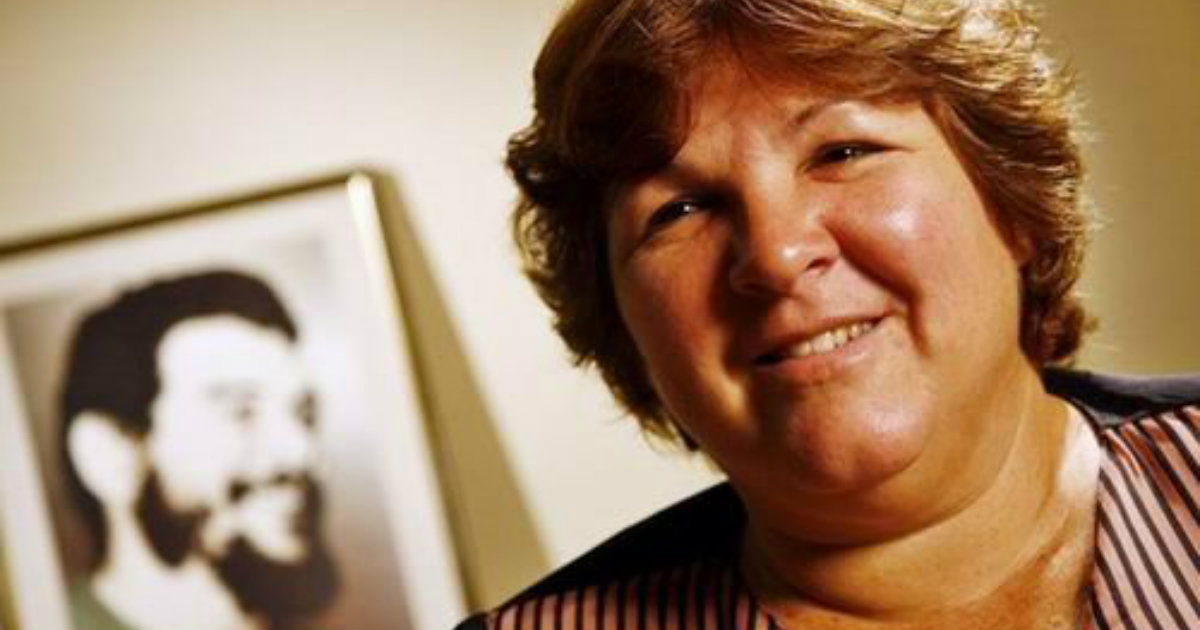
Related videos:
Guía de Isora (Tenerife), February 2 (EFE).- Aleida Guevara, daughter of Che Guevara, believes that Donald Trump's election as president of the United States "is a product of the desperation of a people" and that it "undeniably represents a danger," although it does not "keep her awake at night."
Hours before participating in a discussion series titled "Crossing Perspectives: The Latin American Lefts" at the MiradasDoc International Documentary Festival in Guía de Isora (Tenerife), Aleida Guevara shared her thoughts in an interview with Efe on how she views her country following Fidel Castro's death, as well as her impressions on what Trump's arrival at the White House may entail.
Guevara believes that the United States "no longer knows what to do," and that Trump "is the consequence" of that situation, because his predecessor, the Democrat Barack Obama, "also did not solve the real problems of the people," as he "said things and they were not done, such as closing Guantanamo."
However, in her country's case, Che's daughter does not believe that Fidel Castro's death has created "any uncertainty" about the future of Cuba. "We are fine, we are moving forward," she says.
"We wish Fidel had never died, but this is a physiological matter; he was a normal man, and of course, there is a sense of loss," he adds.
Aleida Guevara acknowledges that under Obama, "there was a rapprochement" between the United States and Cuba, as "the opening of embassies was important." However, she also argues that "there is no normal relationship with a country that economically blocks you; it is impossible."
The Cuban doctor also wonders how they can have "a normal relationship" with a country that has "usurped" a part of its territory, like Guantánamo, and "has not returned it."
"We demand to be left in peace and to have our own social development. It's a matter of the people's decision and not something to be imposed; this is what we have defended all these years," emphasizes the youngest daughter of Che and his second wife, Aleida March.
Guevara works at the William Soler Children's Hospital in Havana and collaborates with the Che Guevara Studies Center.
She argues that Cuba "never wanted to sever relations with the U.S." - "we did not impose the blockade; they did" - unlike what happened with Israel, with which the Castro government did break relations "out of respect for the Palestinian people," she claims.
It also emphasizes that Cuba "was a exploited and humiliated people" as a Spanish colony for centuries and had to earn its "sovereignty through bloodshed." "We had barely finished defeating the Spanish army when the U.S. intervened and took control of the situation. We were a neocolony for more than 50 years," Aleida Guevara asserts.
The doctor believes that the conflict with Washington stems from the fact that Latin America has always been "the backyard of the United States," which "has utilized the resources of its countries as it wishes."
"When a country takes control of its resources for the people, the U.S. government gets upset because it loses wealth," states Guevara, who has practiced medicine in Angola, Ecuador, and Nicaragua and is a member of the PCC. "And that is the issue."
Regarding the graffiti that referenced Fidel Castro after his death, which led to the arrest and subsequent release of its creator, "El Sexto," Guevara believes that "it is not acceptable for anyone to paint in the streets without authorization."
"If that person wants to paint something in their house, they have every right to do so, but when it comes to public property and without permission, that is not acceptable," he clarifies.
In this regard, he adds that "the Cuban people will not accept any graffiti that demeans the leader of the revolution, as it is a sign of disrespect."
Regarding the form of government in Cuba, it is stated that "the people determine the foundation of the government," because if they "wanted different kinds of people, they would choose them from the ground up." "Why don't they propose this? It is the people who elect," it is argued.
Regarding the situation in Venezuela, Aleida Guevara, author of the book "Chávez, Venezuela y la nueva América Latina," believes that "things continue along the same path" with President Nicolás Maduro.
Venezuelan oil "today goes to schools, hospitals, and housing," providing "free" services, whereas before, from his perspective, it "went to the families that the U.S. supported."
The daughter of Che argues that Venezuela is "sowing solidarity," although she acknowledges that it has "serious supply problems," which she attributes to maneuvers aimed at "destabilizing the revolutionary process."
According to him, Venezuela "has not been given time to mature as a process," since "the U.S. has been involved from the very beginning," as it "promised that it would not allow another Cuba in Latin America," and "Venezuela slipped out of their hands; for them, it was a disaster because it had a lot of oil within reach."
Guevara believes that the Latin American left is "always growing," although "there are moments of regression, as in Argentina or Brazil," but "the movement continues onward in Bolivia, Venezuela, Ecuador..." "We are talking about resistance," he adds.
Finally, Aleida Guevara considers Dilma Rousseff's removal as president of Brazil "a disrespect to what you call democracy." "How can the civilized world allow this coup? What freedom of expression are we talking about?" she asks.
Filed under: